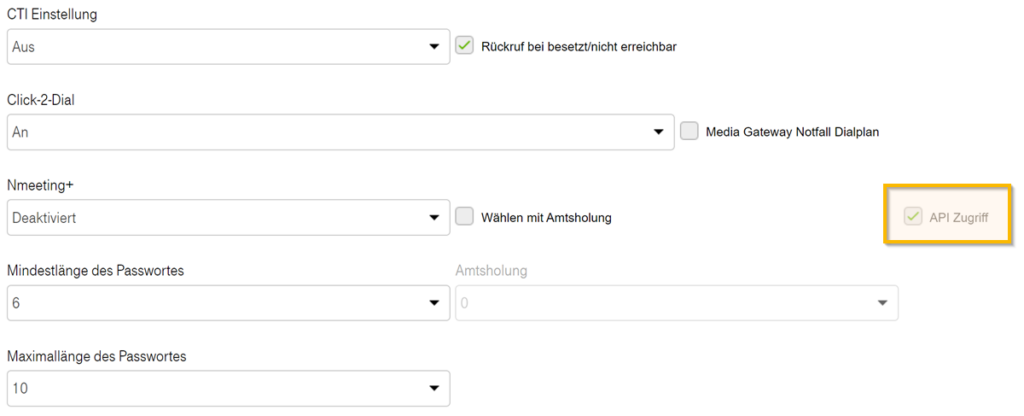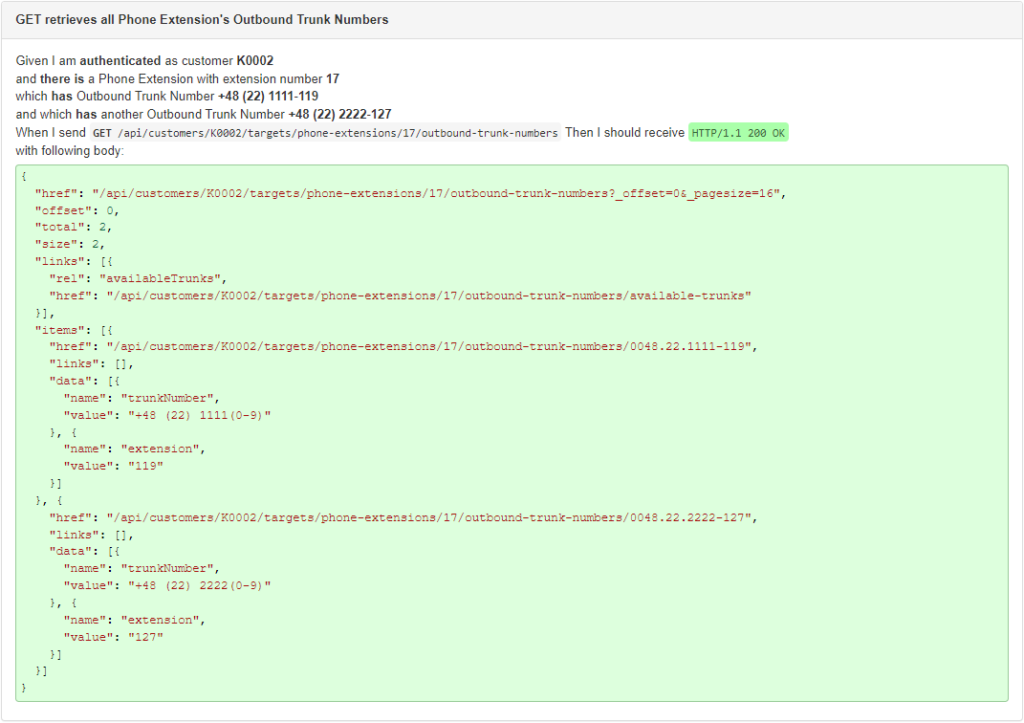Das NFON Application Programming Interface (API) für das NFON-Konfigurationsportal ist ein sehr nützliches und kostenfreies “hidden Feature” und ermöglicht die automatisierte Abfrage und Konfiguration einer oder mehrerer NFON Cloud-Telefonanlagen. Denkbar sind folgende Anwendungsfälle:
- Bestandserfassung (Anzahl Nebenstellen, Endgeräte, Rufnummern)
- Automatisierte Konfiguration von
- Nebenstellen
- Rufnummernzuordnung
- Endgerätezuordnung
- Zentrales Telefonbuch
- Anmeldung an Queues oder Skills
- Rufumleitung
- u.v.m.
NFON Service Portal Dokumentation:
NFON Service Portal API Usage Manual:
NFON Service Portal API Specification:
Dein NFON-Administrator kann bei deinem NFON ‑Partner die Zugangsdaten zur Portal-API anfordern. Dazu muss dein Admin folgende Einverständniserklärung ausfüllen:
Ob der API-Zugriff aktiv ist, kann man nur über einen NFON C‑Account erkennen. Das nebenstehende Bild zeigt die Eigenschaften einer K‑Anlage aus Sicht eines Operators mit einem C‑Account.
Wer nicht die notwendigen Ressourcen oder Zeit für die Einarbeitung in die NFON Portal-API hat, kann sich z.B. an die Firma Froschhäuser IT GmbH (https://ecm-engineering.eu/) wenden. Die Software Portalblitz (https://nfontools.de/) bietet viele nützliche Werkzeuge.
Aktuell arbeite ich an einem Web-Service für den einfachen Zugriff auf die NFON Portal-API:
Inhaltsverzeichnis
JSON
Das Datenformat der NFON Portal-API ist die JavaScript Object Notation (JSON).
JSON-Elemente
Die NFON Portal-API enthält folgende JSON-Elemente:
title
detail
described_by
href
offset
total
size
links
links [{rel, href},...]
data [{name, value},...]
items [{href, links[], data[]}]json2assoc
JSON ist ein baumartiges Textformat, das sich aus meiner Sicht schlecht weiterverarbeiten lässt. Daher habe ich ein paar PHP-Skripte erstellt, um JSON in ein assoziatives Array zu wandeln. Ein assoziatives Array besteht aus Schlüsseln (en: keys) und den zugehörigen Werten (en: values).
Hier ein Beispiel für JSON:
{"href":"/api/customers/KCNU3/targets/phone-extensions/25/callforward-profiles",
"items":[
{"href":"/api/customers/KCNU3/targets/phone-extensions/25/callforward-profiles/0",
"links":[],
"data":[
{"name":"profileNumber","value":0},
{"name":"profileName","value":"default"},
{"name":"active","value":true},
{"name":"immutable","value":true}
]}],
"links":null}
Und hier das daraus erzeugte assoziative Array:
array (
[href] => /api/customers/KCNU3/targets/phone-extensions/25/callforward-profiles
[items.0.href] => /api/customers/KCNU3/targets/phone-extensions/25/callforward-profiles/0
[items.0.data.profileNumber] => 0
[items.0.data.profileName] => default
[items.0.data.active] => 1
[items.0.data.immutable] => 1
[links] =>
)

